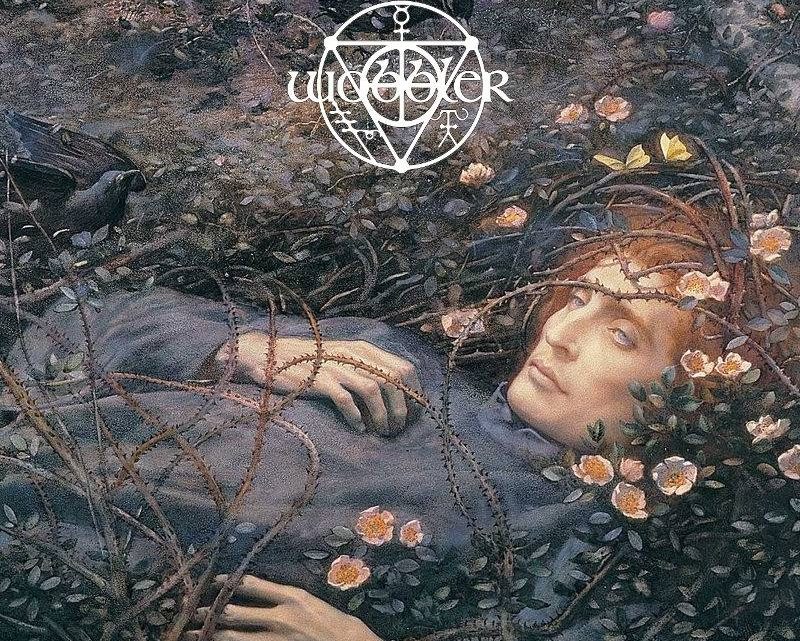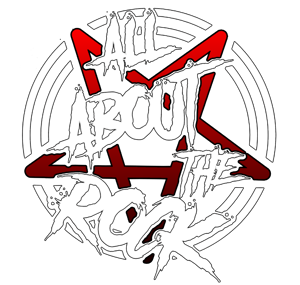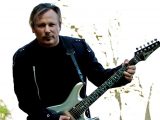
EXCLUSIVE INTERVIEW WITH SYMPHONIC PROG ROCK BAND WOBBLER
22nd December 2019 1 By Dan PeekeOver at All About The Rock, we’re very excited to finally bring you this exclusive interview with modern prog giants, Wobbler. Their 2017 release, From Silence To Somewhere, is ranked at number 1 on the ProgArchives website (putting them above the likes of Tool and Yes), and we wrote a piece lauding it as one of the finest feats of composition we’ve ever heard. Their magical ability to combine a sound so familiar with compositional prowess that avoids rehashing anything we’ve heard before (or dumbing it down) is a seriously impressive one.
Two years after that particular release, they’re gearing up for the release of their 5th album after a year of expanding their touring schedule. We don’t know a lot about the upcoming album, but the band have divulged a few exclusive details just for us. On top of this, we learn what goes into crafting a Wobbler album, a bit of interesting band history, and even get a little look in to the Norway prog scene. Enjoy!
Where does the name Wobbler come from?
That’s the thing about band names, they’re either very meaningful and well thought out or made up on a whim. When we first started Lars (keyboard) and Martin (drums) browsed through a dictionary and came over the word by coincidence.
They thought the name sounded kind of funny when said out loud and its meaning fitting to the band. Back then we were indeed wobbly and unsteady. The name stuck, mostly because we didn’t anticipate the band holding together for this long or actually manage to release material.
There are no hints to anything deeper or any references to something profound. It’s got nothing to do with the fishing hook or the spine disease in dogs and horses either. It just is what it is. Too late to change now anyway, although we thought about that in the beginning as well.
How does it feel to have From Silence To Somewhere lauded by so many, and appear in ranking lists alongside (and above) many of the releases which influenced you?
We’re thrilled, of course. We were very excited, and a bit nervous, at the time of the release. Silence is very different from Rites at Dawn from our perspective and was our first release in six years. When it comes to rankings, we’ve never paid that much attention. We’re used to being among the more obscure bands. But when it started to rise on the ProgArchives listing we couldn’t ignore it.
We assumed we’d fall back before long but instead it kept rising. But it’s a bit silly as well. For Silence to be ranked above albums such as Io Sono Nato Libero and The Yes Album is…come on, that’s not an objective truth. That said, we´re very humbled by the fact that people enjoy the album so much, and that’s what matter to us.
What do you think it was about From Silence To Somewhere that impressed those who heard it so much?
Maybe it’s the pacing. We’re very satisfied that we managed to create a good flow throughout the album. Also, it’s the first album where Andreas (vocals) was a part of the songwriting right from the start. On Rites at Dawn he did vocals on top of already composed, and sometimes already recorded, material. On Silence he was integral to it all. In fact, the title song is mostly composed by him.
It’s got bits and pieces tweaked by the rest of us; we all composed melodic lines for our individual instruments and the final arrangement was, as always, a collective endeavor. But the melodic themes, riffs and lyrics is all Andreas. Besides, Silence is probably the first time that Wobbler has managed to deliver such well-founded vocal lines along intricate instrumental passages all the way through a full album. Additionally, think the production on Silence is the best we’ve ever managed.
For me it was the incredible neatness of the composition; not a single theme goes to waste. Whether it’s the main theme from the title track building from its quiet, restrained first playing into the loud, epic conclusion, or the sudden outro of ‘Foxlight’ perfectly complimenting everything that came before it. What goes into composing with such balance? How do you make the decisions on where to bring a theme back and how it is developed?
The well-balanced outcome is probably the result of collective arrangement. We spent considerable time putting the passages just right, making sure that transitions made sense by themselves, not ended up as something “different” just to get from A to B. There are no filler parts on any of the songs.
Too many bands throw in a nice section of music just to prove that they can play fast or whatever. It’s nothing wrong with nice sections inside songs, but I think that through the album we managed to make the different sections speak to the rest of the whole without juxtaposing them for pure exposition. Again, when it comes to developing themes and when and where to revisit them, that happens in a very organic way. Even if one of us has the main idea it’s a group effort. Of course, that includes long discussions and argumentation. If I recall correctly, we spent two years finalizing the title song after Andreas´ initial presentation of the material.
A lot of your music is highlight technical, which sections are hardest to replicate live?
The hardest thing to replicate live is not necessarily the notes themselves but to re-capture the feeling and flow of the song. In other words, the interaction between us; the right groove, the right nuances to deliver an impact that does the composition justice. Lately we’ve been lucky to have with us Åsa Ree (violin/vocals) and Håkon Oftung (flute/vocals) in live settings. They’re both highly skilled musicians, so we’re finally able to recapture multi-voiced passages as well as relieving Lars (keyboard) of the octopodian effort of playing all keyboard voices simultaneously. But some things are impossible to replicate live.
Guitar tunings that changes multiple times through a composition or guitar tunings that’s just not possible to do outside a studio situation for example. Finally, there are passages in our songs that we wouldn’t wish on our worst enemies, especially on Afterglow. But that’s the way we made them, so we’ll just have to maintain the technical skill to play the songs live. Overall, in terms of sections in our compositions I think the hardest parts to get right live are the ones with polyrhythm and multi-voiced instrumental passages, especially with bad monitoring on stage.
On the album, I hear so many nods to many classic prog bands. The opening to the title track makes me think of ELP’s ‘Tarkus’; the ending of ‘Foxlight’ has clear similarities to Jethro Tull; and the opening of ‘Fermented Hours’ always reminds me of Yes’ ‘Sound Chaser’. Are these intentional? Are there any other nods to other bands/songs?
None of our songs have any intentional nods to other bands. That’s purely in the listeners ears and minds. For example, I don’t think any of us hear Sound Chaser in the opening of Fermented Hours. The thought has never crossed our minds. But that’s the great thing about music. The mind makes connections while you listen. Hopefully connections that are pleasurable.
At the same time that’s also the not-so-great thing about music; we’ve spent a lot time defending ourselves from the “Yes-clone” stamp some critics branded us with, especially after Rites at Dawn. We’re fine with people thinking of Wobbler in the same vein as ELP, Yes and the rest, but the only links we can think of is that we have a similar approach to making music, i.e. total freedom, and of course that we use many of the same instruments and have an old school approach to studio production.
How do you think you developed in sound between From Silence To Somewhere and albums like Hinterlands and Rites At Dawn?
I don’t think our sound has changed that much from the earlier albums. Though, we’re much more used to working in a studio situation now than we were in the Hinterland days. When we record, we still use physical instruments, no MIDI or programming of any kind. When it comes to song structure, I think we’ve become more mature.
As I mentioned earlier, we now focus more on the pacing and flow of a song than we did earlier on. The two main songs on Afterglow for instance, are full of youthful hubris without much thought of an overall structure. They’re still fun to play, but sometimes it feels almost as if they were made by someone else. That said, we had a bit of structure back then as well. The song Hinterland is a good example of themes and motifs being repeated, sometimes in a very altered fashion.
And how do you think your upcoming album builds on this even further?
The next album will of course build on the studio experience we’ve accumulated over the years when it comes to the technical aspect of it. Musically I think it’s fair to say that the audience can expect a focus on structure, like on Silence. Also, like on Silence the vocals will be part of, and essential to the compositions.
In terms of this next album. Can you tell us anything about it? Any release date ideas? A working title? Number of tracks?
No release date has been set yet. We’ll update when we know ourselves. We’ve been through a couple of working titles for the album, but it’s better not to fuel any speculation. So far it seems it will have four or five tracks of varying length. One thing we can say, in part it’s going to be more melancholic and darker than any previous album. At least, that’s the way we feel about it. Although a little light will shine through, in true light-and-shade Wobbler fashion. And of course, there will be strong vocal lines, mellotrons, monosynths, bass fuzz and ornamented guitar outbursts, and it most certainly will be some crazy drumming.
While you’re a modern prog band, I’m sure you’d agree that your music would feel right at home in the 70s. What made you aim your sound towards this more classic sound than many other modern prog bands?
We didn’t aim towards a classic approach at all, not really. When we started in 1998-1999, we’d been listening to a lot of music from the 60-70ties for a long time. That’s what brought the band together in the first place, our love for music and musicians showing skill, sense of melody and complexity. None of the contemporary progressive acts impressed us much back then, except for Änglagård, Anekdoten, Landberk and a couple of others, and they were also pretty much playing music of the “classic” progressive kind. It’s the whole thing, real instruments, especially keyboards, real physical amps etc.
In our hometown back then all other bands were playing the sound of the day, wanting to be pop/rock stars, so we decided to be a contrast. Instead of accessible we set out to be complex. Instead of short and easy melodies we went for melody and theme development more along the lines of classical music. Of course, that made us walk in the shadow of death, musically speaking.
Much like the early black metal scene; we wanted to play inaccessible music. Music that only we and those who chose to listen would enjoy. That included the production side of it as well. No heavily compressed guitars and drums and no respect for the loudness war. Our love for bands like King Crimson, Banco Del Mutuo Soccorso, Il Balletto di Bronzo, PFM, Yes, ELP etc. gave us a focus point musically, but more in the sense of something to reach for rather than copy.
Obviously, bands such as Yes, Genesis and ELP influence your sound, but are there any more subtle influences we may not have picked up on? Or even influences from bands we may not have even heard of?
I believe we’ve mentioned this a lot in interviews, but I don’t think people realize how big an impact early black metal had on Wobbler in the early days. Lars (keyboards) and Martin (drums) were deep into the early black metal scene and both have played in black metal bands live and in studio. A very young Lars even auditioned as keyboard player in Satyricon at some point.
If you listen to sections and themes from the two first Wobbler albums and manage to imagine added blast beats and shrieking vocals, I think you’d be surprised of the result. Other than that, we all like early and baroque music very much. Martin (drums) played flute and drums in an early-music orchestra in his younger days. Our musical interests span very wide, from pop to extreme metal.
I don’t think any of us listen very much to so called progressive music anymore, though. Occasionally, for old times’ sake we put on albums by the greats of yonder, but again, just as when we were younger, 95 percent of modern “prog” music don’t impress us very much. We don’t really consider ourselves as a “prog” band in essence either, but that’s another long and convoluted discussion.
What about your lyrics? Where do they come from?
On the latest albums Andreas (vocals) have been the key lyrics writer. The rest of us also write lyrics from time to time, but Andreas is the main source. Sometimes he presents lyrics to us for input and collaboration, and sometimes it´s the other way around, but usually Andreas visits other dimensions in his head and comes back with concepts that are both beautiful in their bliss and otherworldly in their execution.
As a whole, Norway is known more for its extreme metal, but is there anyone interesting we should be on the lookout for in the prog scene over there?
There’s a lot of progressive bands in Norway, as well as bands that are close enough to be labelled “prog”, if one wants to do such a thing. Håkon Oftung’s band Jordsjø for instance. Jordsjø is following in our tradition in a way and Håkon is a brilliant musician.
His main instrument is guitar, but he also plays keyboards very well, and flute and vocals. Also check out Åsa Ree’s band Meer, a band that’s almost an orchestra. A bit on the side of “prog” for many listeners maybe, but very good. Other bands you can check out are Glutton and Panzerpappa from Oslo, Arabs in Aspic from Trondheim and the great Ring Van Möbius from Karmøy outside of Haugesund.
But there’re lots of more bands. In no special order: Shaman Elephant, Seven Impale, Himmellegeme, Oak, Fervent Mind, Trojka. Then you have the alternative/post-rock/metal scene with bands like Spurv, Sâver, Krakow and others. The list could go on, there´re probably a lot of bands we don´t know about as well.
Have you ever considered working genres you haven’t yet experimented with into your music? Death metal? Hip-hop?
Yes. Album number six will a mash up of progressive rock and hip-hop. A concept album exploring the enduring taste of marmalade and sriracha sauce from a unicorn’s point of view.
Do you have any plans to bring a Wobbler to the UK for a tour?
In October we headlined the Friday at the Summers End Festival in Wales and we’ll played in Glasgow on December 3 at The Drygate Brewery Co. as part of the annual PB4X festival arranged by the band Abel Ganz. There are also some plans for a possible tour in the UK, but it’s still under planning. If it happens, we’ll announce it far and wide. We’d love to do to more shows in the UK.
For all things Wobbler, click HERE
About the author
I like classic rock like Led Zeppelin and Pink Floyd and Hendrix, Metal like Metallica and Slipknot, into more extreme stuff like Cannibal Corpse and Anaal Nathrakh. Other than rock, I love Bob Marley, blues legends like BB King, Rock n Roll like Chuck Berry, Jazz, Country and Bluegrass. I also like a bit of Elton John and Eminem every now and then (Sorry!). But overall my favourite bands are System of a Down, Five Finger Death Punch, Rush, Children of Bodom, Led Zeppelin, Pink Floyd and Anaal Nathrakh.
1 Comment
Leave a Reply Cancel reply
You must be logged in to post a comment.
This site uses Akismet to reduce spam. Learn how your comment data is processed.



[…] I interviewed Wobbler last year, they told me that “album number six will a mash up of progressive rock and hip-hop. A concept […]